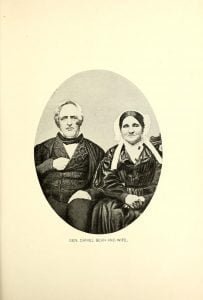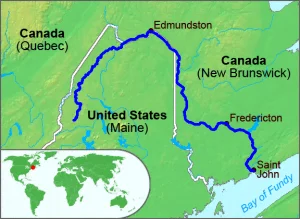Garrisons, Block-Houses, and Forts in the Saco Valley
During the Indian wars various kinds of fortifications were built by the settlers along the Saco river. Some of these were put up by individuals for the better protection of their own families, and others were built by authority of the Provincial Government and paid for from appropriations voted “for the defense of the frontier.” When the Indians threatened the settlement along the coast the people importuned the Great and General Court for funds to erect forts and blockhouses. These were to be built of stockades, or square timber, in such places as would best accommodate the inhabitants in each … Read more





